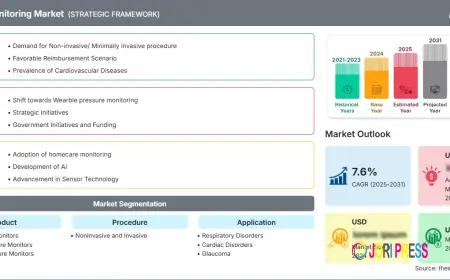What is the 7 Day Rule for Cancer Patients?
Learn about the 7 day rule for cancer patients, its importance in treatment and care, and how timely decisions can improve comfort and outcomes.

Cancer treatment is complex and requires careful planning. One important concept that often comes up in patient care discussions is the “7 day rule.” Understanding this rule can help patients, families, and caregivers make informed decisions about treatment schedules, hospital visits, and supportive care. In this article, we will explain the 7 day rule in simple terms, why it matters, and how it can impact the overall well-being of cancer patients.
Understanding the 7 Day Rule
The 7 day rule generally refers to a guideline in cancer care where certain actions or interventions should be taken within a week to ensure optimal outcomes. This could relate to administering medications, scheduling treatments, monitoring side effects, or initiating supportive care. Following this timeline can help prevent complications, reduce hospital readmissions, and improve the patient’s comfort.
For example, if a patient experiences a sudden change in symptoms, such as increased pain or difficulty swallowing, the 7 day rule may suggest that these issues be addressed by healthcare professionals within seven days. This ensures that minor issues do not escalate into major complications.
Why the 7 Day Rule Matters
Timing is critical in cancer care. Treatments like chemotherapy, radiation, or surgery often have a window of effectiveness, and missing these windows can reduce the benefits of the treatment. The 7 day rule helps patients stay on track with their care plan.
Additionally, early intervention in response to new symptoms or side effects can significantly improve quality of life. Waiting too long can lead to discomfort, infections, or more severe health problems that could have been avoided. Caregivers and family members also benefit from this guideline, as it provides a clear framework for monitoring and responding to changes in the patient’s condition.
It is also worth noting that patients in Phoenix, AZ, looking for Non-Medical Cancer Support in Phoenix, AZ can find assistance that aligns with these timelines, helping families stay on top of essential care steps.
How the Rule Applies to Different Care Scenarios
The 7 day rule is not limited to hospital visits or clinical treatments. It also applies to home care, medication management, and emotional support. For instance, after a patient is discharged from the hospital, scheduling a follow-up visit within seven days can help detect complications early.
In home care scenarios, caregivers are advised to check for changes in appetite, mobility, or pain levels and communicate any concerns promptly to healthcare providers. This approach reduces the risk of urgent hospital visits and ensures the patient maintains a good quality of life.
Moreover, timely initiation of palliative or supportive care within this period can greatly reduce physical and emotional stress for both patients and their families.
Supporting Patients with Timely Care
Managing cancer requires a combination of medical treatment and practical support. Many patients and families turn to trusted healthcare services for guidance on care planning. For instance, Afair Healthcare has established itself as a reliable provider for patients seeking compassionate and timely care. They focus on ensuring patients receive the right support within critical timelines, which can be crucial for comfort and treatment effectiveness.
By partnering with experienced care providers, families can better follow the 7 day rule, making sure patients do not miss essential steps in their treatment or support plan. This includes coordinating home care visits, medication delivery, and regular check-ins to monitor the patient’s condition.
Practical Tips for Following the 7 Day Rule
-
Schedule Follow-Ups Promptly: Keep a calendar for appointments and follow-ups, aiming to have consultations within seven days of any concerning symptoms.
-
Monitor Symptoms Daily: Track any changes in pain, appetite, fatigue, or mood. Early detection is key to timely intervention.
-
Communicate Clearly: Make sure caregivers, family members, and healthcare providers are informed about any changes immediately.
-
Plan for Home Support: Arrange home care services that can respond quickly if the patient’s condition changes.
Following these simple practices can significantly reduce stress and complications for cancer patients.
Emotional and Non-Medical Support
While the 7 day rule often focuses on clinical timelines, emotional and social support is equally important. Patients who feel supported and cared for are more likely to adhere to treatment schedules and recover more comfortably.
Families can explore options for Non-Medical Cancer Support in Phoenix, AZ, which offers guidance on emotional well-being, nutrition, and daily activities. Services like these complement medical care by ensuring patients maintain stability and comfort during treatment.
Conclusion
The 7 day rule for cancer patients is a practical guideline that emphasizes timely intervention, symptom monitoring, and supportive care. By addressing issues within seven days, patients can reduce complications, improve comfort, and stay on track with their treatment plan.
Partnering with reliable healthcare providers, such as Afair Healthcare, can make it easier to follow this guideline while ensuring patients receive compassionate care. Combining timely medical attention with non-medical support ensures that patients receive comprehensive care tailored to their needs.
Incorporating the 7 day rule into cancer care routines is not just a recommendation; it is a way to maintain safety, comfort, and quality of life for patients and their families.
What's Your Reaction?
 Like
0
Like
0
 Dislike
0
Dislike
0
 Love
0
Love
0
 Funny
0
Funny
0
 Angry
0
Angry
0
 Sad
0
Sad
0
 Wow
0
Wow
0
















































